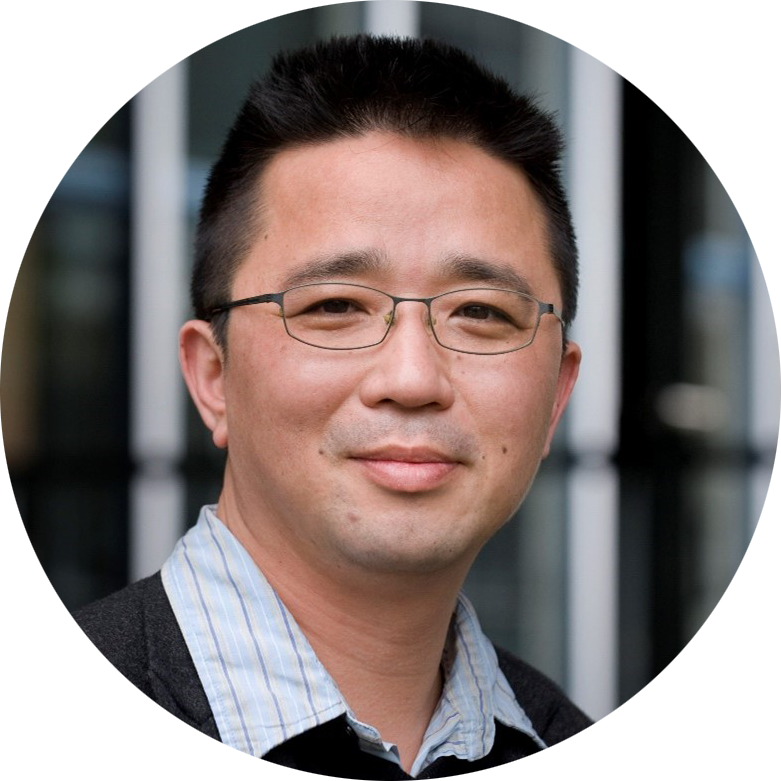
ASSOCIATE PROFESSOR
DANIEL GLOBISCH
Associate Professor Daniel Globisch started his research group in 2015 at Uppsala University in Sweden as a SciLifeLab Fellow. He has been appointed as Associate Professor in April 2017 and received tenure in December 2020. Daniel is also affiliated with the Center for Translational Microbiome Research (CTMR) at Karolinska Institute. His PhD degree was awarded from the Ludwig-Maximilians-University Munich (Germany) in 2011. For his 4,5 years postdoctoral studies, he joined The Scripps Research Institute, La Jolla, CA (USA), where Dr. Globisch discovered the urinary biomarker N-acetyltyramine-O-glucuronide (NATOG) for the neglected tropical disease onchocerciasis. He also developed an antibody-based urine dipstick test as a new and non-invasive diagnostic. In his laboratory, Dr. Globisch’s research focus lies on the development of new Chemical Biology tools to enhance the scope of metabolomics research.
His interdisciplinary research projects integrate global metabolomics, organic chemistry as well as Chemical Biology and are focused on elucidating the metabolic interaction between microbiota and their human host. He explores the potential of microbiota metabolism as a new strategy for the discovery of unknown biomarkers for pancreatic and colorectal cancer as well as unknown bioactive metabolites produced by the gut microbes. The contributions to both research fields have led to growing international reputation with examples through the invitation for the ChemBioTalents Special Issue in ChemBioChem 2019, invitations to the Pioneering Investigator Series 2023 at Chem. Comm., two Emerging Investigator Series at The Analyst and RSC Advances as well as more than 50 talks at high profile conferences. He is an elected Board Member of the Nordic Metabolomics Society since 2019 and has received funding from diverse funding agencies including participation in three EU projects.

ASSOCIATE PROFESSOR
GURO F. GISKEØDEGÅRD
Guro F. Giskeødegård is an Associate Professor in biostatistics at the Norwegian University of Science and Technology (NTNU), employed at the HUNT Center for Molecular and Clinical Epidemiology. Her main research areas are metabolomics and multi-omics analyses within the area of cancer research, with a focus on statistical analysis and modelling of large -omics data sets. She has experience from working with large biobank materials of cancer tissue, and has through this work investigated molecular patters of prognostic potential, related to diagnosis and treatment response. The last years, she has shifted the focus towards large-scale metabolomics analyses of biofluids and gut microbiota profiling within cancer, aiming for early detection, treatment monitoring and understanding the negative effects of cancer treatment.

ASSOCIATE PROFESSOR
HELEN LINDQVIST
Helen is an Associate Professor at Department of Internal Medicine and Clinical Nutrition, Sahlgrenska Academy, University of Gothenburg. She defended her dissertation in 2008 at Chalmers University of Technology, and the thesis focused on high quality dietary interventions and risk factors for cardiovascular disease, already then reflecting an interest in biomarkers that could be used as markers for dietary compliance. Her work within metabolomics started together with Anna Winkvist and co-workers at the Swedish NMR Center in 2011. Today her work within dietary metabolite patterns covers post-prandial studies, dietary cross-over intervention studies, and cohort studies. Focus has been on finding patterns of metabolites in both serum and urine samples that separate different diet regimens such as high and low intake of food from animal sources.
Since many years she has also focused on how diet influences patients with rheumatoid arthritis. Also, in this field metabolomics has been used as a tool to find metabolites that could both reflect dietary compliance but also discriminate between responders and non-responders.

ASSOCIATE PROFESSOR
MARINE LETERTRE
Marine is an associate professor in NMR metabolomics in the CEISAM Institute (Nantes University, France). She obtained her PhD in 2020 from one of the worldwide pioneer group in metabolomics at Imperial College London (ICL, UK), where she studied the bidirectional biomolecular interactions between the intestinal microbiota and host drug metabolism and gained knowledge in NMR and MS metabolomics. Since she joined the CEISAM Institute in 2021, she has been a driving force in setting up new projects around clinical and toxicology studies based on NMR metabolomics. To overcome the current limitations of NMR metabolomics, her research projects aim at exploring innovative methods to make NMR-based metabolomics more sensitive, resolved and accessible. Namely, she is assessing the applicability of fast 2D, hyperpolarised and benchtop NMR to metabolomics, their integration into a high-throughput metabolomics workflow, and their complementarity with the other analytical foundation of metabolomics, mass spectrometry. She believes in the strength of combining NMR and MS-based metabolomics through multiblock integration to increase statistical performance while increasing the metabolome coverage. Her contribution to the metabolomics community is marked by strong interactions with the French metabolomics infrastructure MetaboHUB, her 1-year presidency of the Early-Career Members Network of the Metabolomics Society, and her strong involvement in the junior board of directors of the French speaking Network of Metabolomics and Fluxomics, for which she is now vice-president. Her research has been recognized through two ICL Dean’s internship prizes, the 2021 RFMF PhD price, and 7 travel bursaries.

TIM EBBELS
Prof Tim Ebbels obtained his PhD in astrophysics from the University of Cambridge and in 1998 moved into bioinformatics via postdoctoral work at Imperial College London. His group focuses on the application of bioinformatic, machine learning and chemometric techniques to post-genomic data, with a particular emphasis on computational metabolomics. He has worked on projects ranging from environmental monitoring, through molecular epidemiology, to toxicogenomics and high-performance computing infrastructures. Key areas of interest are data processing, data integration, visualisation, network analysis, time series and metabolite annotation. He is particularly known for the ‘BATMAN’ software for analysing complex metabolic NMR spectra. Tim is an active member of the metabolomics community, having served as a Director of the international Metabolomics Society from 2012-2018 (Secretary from 2014-16). He has co-organised several international conferences (international scientific committee Metabolomics 2014-17) and is a co-founder of the London Metabolomics Network. He has contributed to numerous community-wide efforts aimed at improving the quality and reusability of metabolomics data, and is an editorial board member for BMC Bioinformatics and the Journal of Chemometrics. He has a strong commitment to postgraduate education, serving as Director of the MRes in Biomedical Research at Imperial College (~1000 students trained), leading its Data Science stream and leading the Data Analysis short course at the Imperial’s International Phenome Training Centre. He is a Fellow of the Royal Society of Chemistry and Lifetime Honorary Fellow of the Metabolomics Society.

ASSOCIATE PROFESSOR
YOUNG HAE CHOI
Affiliation: Natural Products Laboratory, Institute of Biology, Leiden University, Sylviusweg 72, 2333 BE, Leiden, The Netherlands
Country: The Netherlands
Short Biography: Young graduated on College of Pharmacy, Seoul National University in 1992. In 2000, he received PhD diploma from the same university. The title of his PhD thesis is ‘Supercritical Fluid Extraction of Nitrogen-Containing Natural Products’. After two years of post-doc experience working at the application of mass spectrometry to the identification of natural products, he moved to Leiden University, the Netherlands (the present position). In the last 20 years, he developed diverse metabolomics methods of plant and microorganisms. Using the developed methods, a wide range of biological model systems were investigated for the research questions related to biology, physiology, and ecology. Some of his representative metabolomics research can be exemplified with tobacco–TMV (tobacco mosaic virus), Brassica–herbivores, Senecio– thrips, Brassica and Arabidopsis treaded with signal molecules (salicylic acid, jasmonate, and benzothiadiazole), Catharanthus–phytoplasma and some chemo-taxonomical applications for Ilex and Cannabis. And many traditional medicines were used for metabolomics. On top of the research field of metabolomics he has also focused on green technology using natural deep eutectic solvents and supercritical fluids. Based on the research career, so far, he has published more than 290 peer-reviewed scientific papers that has been cited over 13,000